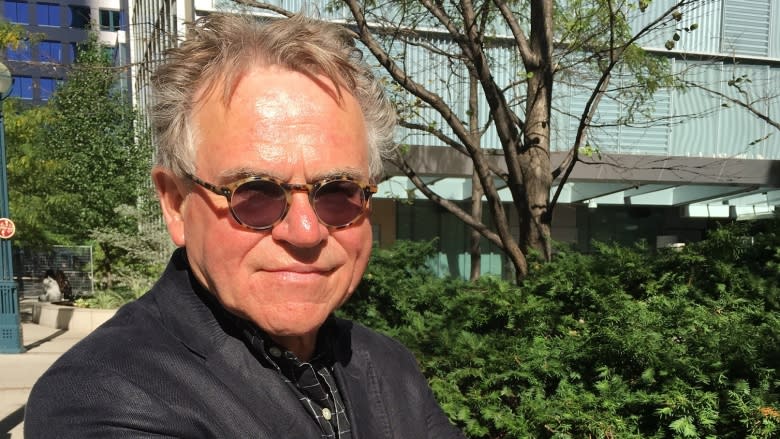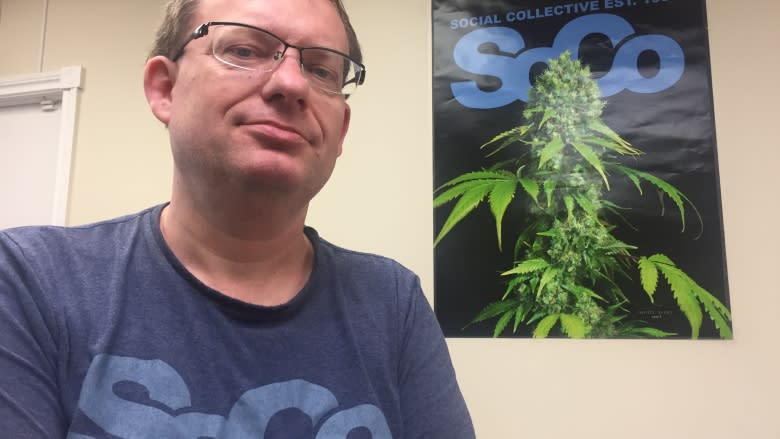Police raids against marijuana storefronts unconstitutional, this pot retailer argues in court
If last year's police raids on marijuana dispensaries were unconstitutional — as a medical marijuana dealer claimed in court Thursday — then all marijuana dispensaries must be legal, a crown attorney argued.
David Morlog was responding to arguments made by Alan Young, an Osgoode Hall Law School professor who's representing Mark Stupak, one of more than 90 people who were charged following the Project Claudia raids in May of 2016.
- Toronto police raid storefront pot shops suspected of trafficking
Legal arguments before Justice Heather McArthur wrapped up Thursday without a decision on the constitutionality of the raids, which saw 43 pot dispensaries shut down and 186 charges laid.
Stupak, the owner of the SoCo Medical Social Collective, was charged in May, 2016 with possession of marijuana for the purpose of trafficking, and possession of the proceeds of crime — more than $5,000 in cash.
Young maintains the charges are unconstitutional because no clear-cut laws were in place at the time to provide relief for the legitimate medicinal marijuana users Stupak sells to.
"This is one of the last times I have a chance to, frankly, embarrass the government
about how careless they've been in taking seriously the issue of medical marijuana," Young told CBC Toronto.
"Unfortunately, they've always seen it as an excuse for recreational use. They haven't taken it seriously."
In June, 2015, the Supreme Court of Canada ruled that medicinal pot users should be allowed access to a variety of marijuana products — oil, for example — rather than simply dried leaves.
But it took Ottawa until August of 2016 to put those new rules in place.
In the meantime, Young argues, marijuana retailers had the moral authority to fill the void by providing products to medicinal users over the counter.
"That whole grey zone is a very apt metaphor, but the reality is there's law and there's morality, and sometimes they don't converge. But that doesn't mean you abandon your moral choices," Young told CBC Toronto Tuesday.
"We believe the constitution protects those who do what the government has failed to do."
But on Thursday, Morlog argued that there never was a break in the availability of pot for legitimate medical marijuana users, and therefore no gap for Stupak to fill with over-the-counter weed.
Morlog also said if the court rules the raids were unconstitutional, then operating a dispensary must be legal — even though pot won't be legalized until next year.
And at least one outside legal expert is also questioning the validity of Young's argument.
Bill Bogart, a law professor at the University of Windsor and the author of Off the Streets: Legalizing Drugs, told CBC Toronto Wednesday that for the most part, medicinal marijuana can only be sold by licensed producers who deliver their product by mail — not by retailers selling pot over the counter.
'A way of drawing attention'
Bogart said it's possible the challenge is really a strategy designed to raise the profile of retailers, as the province puts the finishing touches on a distribution plan for legalized recreational marijuana, expected to happen next year.
"Retailers have not fared well in the courts, in the courts of public opinion and now in the proposed regulatory scheme Ontario has put forward," he said.
"It may be that the court case is a way of drawing attention to what they want, and building support."
In May of 2016, Toronto police raided 43 storefront pot distributors, as part of Project Claudia. More than 90 people — including Stupak — were arrested, and 186 charges were laid.
'Labelled as criminals'
Stupak told CBC Toronto on Monday that Claudia was "really disturbing.
"The people who were charged were labelled as criminals. We were being slandered so we had to spend the time to prepare a decent constitutional challenge, and separate medical [marijuana] from recreational."
Neither the Toronto police nor the federal government's Public Prosecution Service of Canada would speak with CBC Toronto about the validity of the constitutional challenge.




